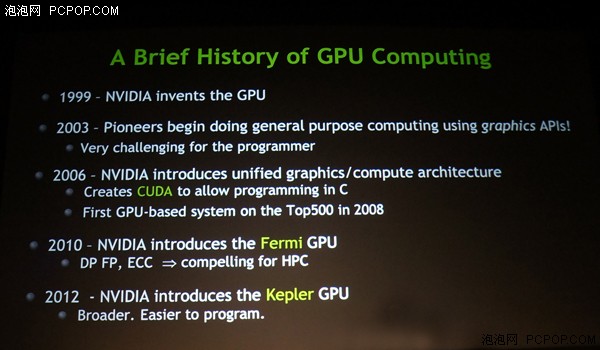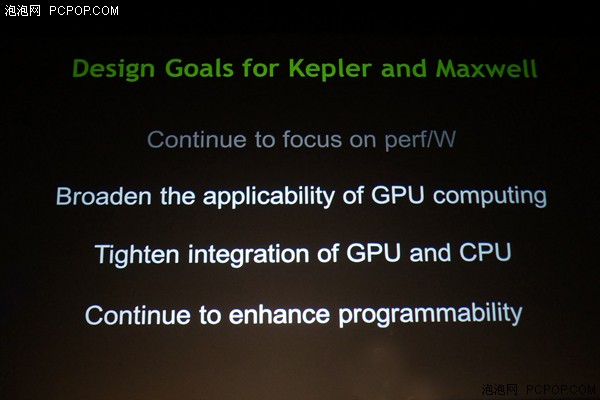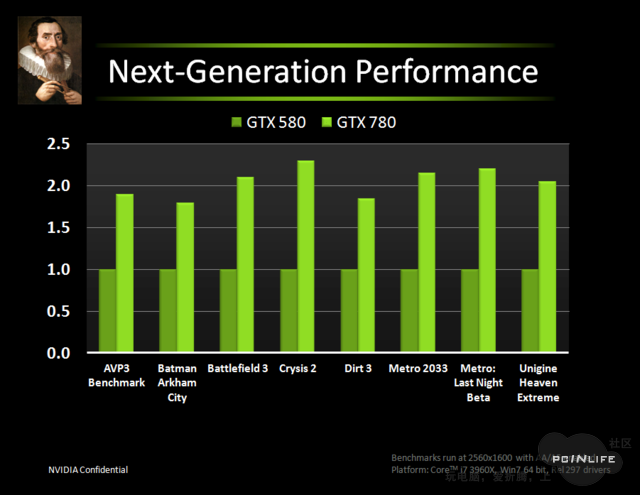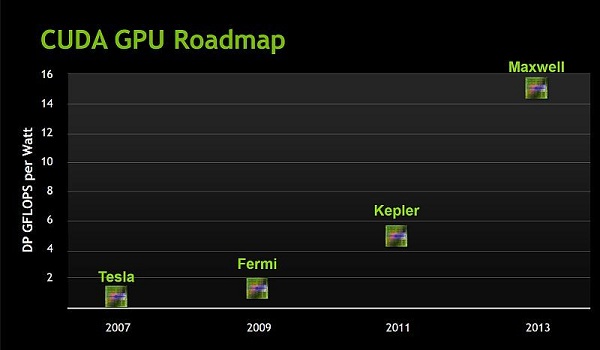Probably fake. But one thing I do believe. It wouldnt surprise me at all that they end up calling GK104 the GTX680, if it is close to 7970 performance, which it might be if those 768 Cuda cores are true.
Install the app
How to install the app on iOS
Follow along with the video below to see how to install our site as a web app on your home screen.
Note: This feature may not be available in some browsers.
You are using an out of date browser. It may not display this or other websites correctly.
You should upgrade or use an alternative browser.
You should upgrade or use an alternative browser.
Man from Atlantis
Veteran
Probably fake. But one thing I do believe. It wouldnt surprise me at all that they end up calling GK104 the GTX680, if it is close to 7970 performance, which it might be if those 768 Cuda cores are true.
it is highly a fake indeed.. i think 600 series will be mobile fermi shrinks and desktop part will be 700s..
it is highly a fake indeed.. i think 600 series will be mobile fermi shrinks and desktop part will be 700s..
Finally N'Sync.
nVidia marketing would never make a graph that starts at zero.
Or mix up Metro: Last Light with that transgender stripper from that particular bar in Bangkok
DarthShader
Regular
To run those benchmarks, they'd have to have actual cards in house. I don't think they have atm.
Silent_Buddha
Legend
And what's with Nvidia skipping number generations every other generation?
We had 280 -> 480. Then we have a more logical 480 -> 580. Now rumored to go directly from 580 -> 780?
It makes me think they just flip a coin when trying to determine the generation of a card. Heads = 1 generation bump in naming scheme. Tails = 2 generation bump in naming schemes.
Whoever does their consumer naming schemes should be fired.
Regards,
SB
We had 280 -> 480. Then we have a more logical 480 -> 580. Now rumored to go directly from 580 -> 780?
It makes me think they just flip a coin when trying to determine the generation of a card. Heads = 1 generation bump in naming scheme. Tails = 2 generation bump in naming schemes.
Whoever does their consumer naming schemes should be fired.
Regards,
SB
Well if 480 -> 580 warrants a "generation" jump in your point of view, then 580 -> 780 should definitely warrant a two "generation" jump.We had 280 -> 480. Then we have a more logical 480 -> 580. Now rumored to go directly from 580 -> 780?
Man from Atlantis
Veteran
So Kepler is now supposed to have more "sustained" DP flops than what is presumably peak flops?
Nah, the "1" level of Tesla obviously is different, but the more curious part is how Maxwell got down the scale that much
upnorthsox
Veteran
Nah, the "1" level of Tesla obviously is different, but the more curious part is how Maxwell got down the scale that much
Do you mean in gflops or that it's now projected for 2014?
I am always a bit mystified that so many people seem to harp on about product delays. As far as I'm concerned, when designing a product as complex as a GPU, delays are to be expected. The fact of the matter is that each new GPU, from any developer, crosses new ground and requires the solving of engineering challenges that have never before been solved. It is just unreasonable to expect that early estimates of the time required will be met when the engineers don't even know what problems they will face.
It's easy to criticize and claim that they should take the unknown into account. But in practice this is just an unreasonable request nearly all the time.
It's easy to criticize and claim that they should take the unknown into account. But in practice this is just an unreasonable request nearly all the time.
It's easy to criticize and claim that they should take the unknown into account. But in practice this is just an unreasonable request nearly all the time.
But the current expectations are built on 100% perfect execution, which is really the other side of the scale in this situation.
I don't think that's ever true. In a design, there are always problems. It's just a fundamentally difficult thing to anticipate them all.But the current expectations are built on 100% perfect execution, which is really the other side of the scale in this situation.
Do you mean in gflops or that it's now projected for 2014?
the gflops/watt part, the years have been going back and forth on every iteration of this roadmap, even for the already released parts
Old
http://www.abload.de/img/ctmaxwell1.jpg-5f3c6xwrth.jpeg
Latest from GTC Asia
http://www.abload.de/img/002241127wupws.jpg
Kepler and Fermi +
Maxwell -
pcpop


Funny, I've never noticed that the older slide probably talked about peak GFLOPS/w and the newer one explicitly mentions sustained GFLOPS/w.
Blazkowicz
Legend
Well if 480 -> 580 warrants a "generation" jump in your point of view, then 580 -> 780 should definitely warrant a two "generation" jump.
yep 480 -> 580 is about the same jump as 7800 -> 7900, or 280 -> 285
DavidGraham
Veteran
?????
http://www.techpowerup.com/157039/NVIDIA-Kepler-To-Do-Away-with-Hotclocks.html3DCenter.org has learned that with the next-generation "Kepler" family of GPUs, NVIDIA will do away with this "Hotclock" principle. The heavy number-crunching parts of the GPU, the CUDA cores, will run at the same clock-speed as the rest of the GPU.
it is also learned that NVIDIA will have higher core speeds overall. The clock speed of the GK104, for example, is expected to be set "well above 1 GHz", yielding compute power "clearly over 2 TFLOPs" (3DCenter's words). It looks like NVIDIA too will have some significant architectural changes up its sleeve with Kepler.
Similar threads
- Replies
- 12
- Views
- 2K
- Replies
- 163
- Views
- 8K
- Replies
- 47
- Views
- 5K
- Replies
- 85
- Views
- 10K
- Replies
- 209
- Views
- 14K



